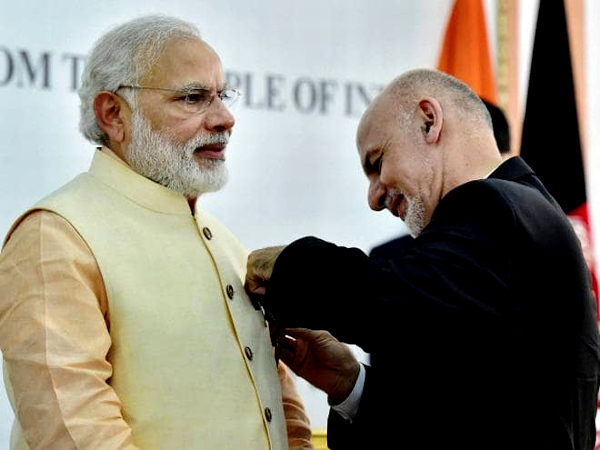US President Donald Trump recently mocked Prime Minister Narendra Modi, who has promoted soft power policies in Afghanistan that benefit India and the US, about building a “library” and not doing enough to help stabilise the war-torn country. Some believe Trump mistook the Afghan parliament for a library, but whatever the intention, the perception was not welcomed by Afghans, Indians and US citizens. From an Afghan perspective, India’s soft power is effective in Afghanistan and the Indian government doesn’t need to have direct military involvement in the country.
There are three reasons for these conclusions: historic India-Afghanistan links; a feeling of kinship due to Bollywood’s popularity; and India’s support to rebuild Afghanistan.
The historic links form the bedrock of friendly relations. Afghan vice-president Mohammad Sarwar Danish highlighted this during the 70th Indian Independence Day celebrations at the Indian embassy in Kabul by saying, “Afghanistan and India have 1,000 years of historic relations…As a result, both countries’ history is nested together and cannot be divided.” According to a study, there are countless Afghan-related monuments and historic and cultural items across India. Similarly, there are more than a dozen sites in Afghanistan with Indian artwork.
India’s film industry has nurtured a feeling of friendship among Afghans. I was four months old when I left the country with my uncle’s family in 1984 to settle in Peshawar, Pakistan, because of the Soviet invasion. I was 12 years old when I watched the Indian movie Saajan. Watching Indian films was a family tradition and men and women gathered to watch them every Friday night. In the past 17 years of the US involvement in Afghanistan, most TV and radio stations play Indian songs as part of their routine programming.
Indian support to the Afghan government is vital due to its soft power and influence on the population. India has influenced Afghans and gained their trust and respect for two reasons: India has helped economically to rebuild Afghanistan; and both countries face a shared threat from Pakistan.
India is the largest regional donor to Afghanistan, having provided $3 billion. The new parliament building, Salma dam in Herat province, and a highway to Iran’s Chabahar port, are a few prominent projects backed by India. Chabahar is of immense importance to Afghanistan because it provides access to the oceans and reduces dependence on Pakistan. Through an indirect military role, India trains Afghan security forces and supplies modest quantities of defence gear.
Economically and politically, these are the most beneficial options in India’s Afghanistan policy that strengthen the consensus that India should not deploy troops in Afghanistan. Our country has seen many foreign military involvements and, as a result, Afghans dislike many foreigners. But this dislike does not include India. In December 2015, when Modi visited Kabul to inaugurate the parliament building, people welcomed him and expressed their love for Indian people through social media.
Kabul has been a victim of Islamabad’s “strategic depth” policy that sees Afghanistan as the fifth state of Pakistan. India too has been a victim of Pakistan’s proxy wars. The shared threat from Pakistan, home to the Taliban and Lashkar-e-Taiba, has strengthened India-Afghanistan ties.
India, with the world’s second largest Muslim population, has suffered from the proliferation of radical Islamic ideologies in Afghanistan and Kashmir by Pakistan. India cannot mitigate these transitional threats without help from Afghanistan and a friendly relationship with a legitimate Afghan government is in India’s vital interest. Also, Indian support for an Afghan-led and Afghan-owned peace process is very important for both countries.
India’s stability is directly related to Afghanistan’s stability. The great poet Allama Iqbal described Afghanistan as the “heart of Asia”, a country whose stability will ensure the stability of Asia. For an India safe from terror threats, India does not need boots on Afghan ground. India can achieve its goal by helping the Afghan government through economic aid and by strengthening its strategic relationship with the Afghan government and non-governmental institutions.
Source: HT
Image Courtesy: The Hindu
You may also like
-
IAF Aircraft Set Course For Exercise Eastern Bridge VII At Oman
-
India-us Working Together In Areas Like Critical Minerals, Supply Chains And Advanced Technologies: Shri Piyush Goyal
-
Defence Secretary to co-chair 5th India-Philippines Joint Defence Cooperation Committee meeting in Manila
-
2nd India-Japan Finance Dialogue held in Tokyo on 6th September, 2024
-
Prime Minister, Shri Narendra Modi welcomes Crown Prince of Abu Dhabi
